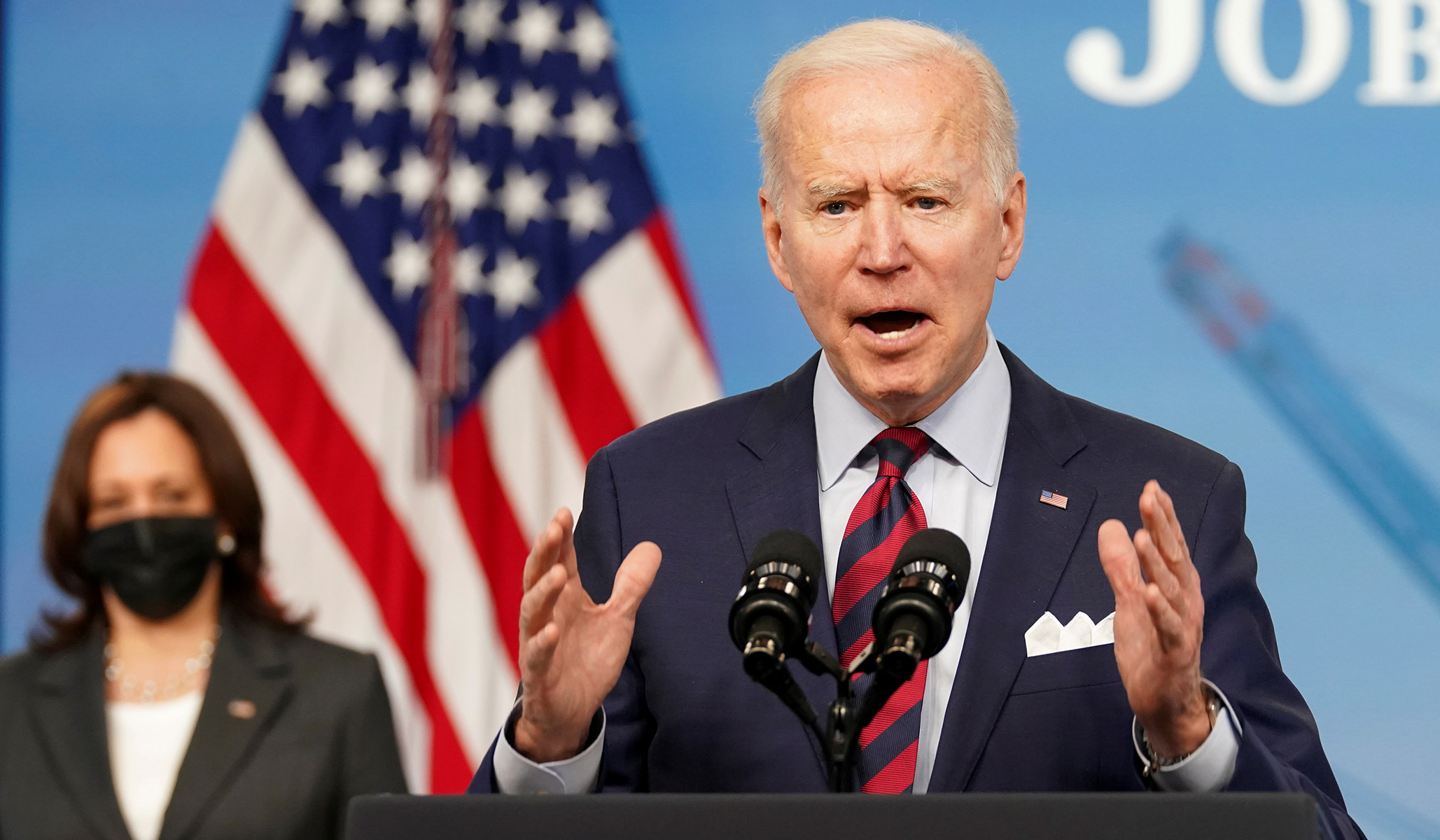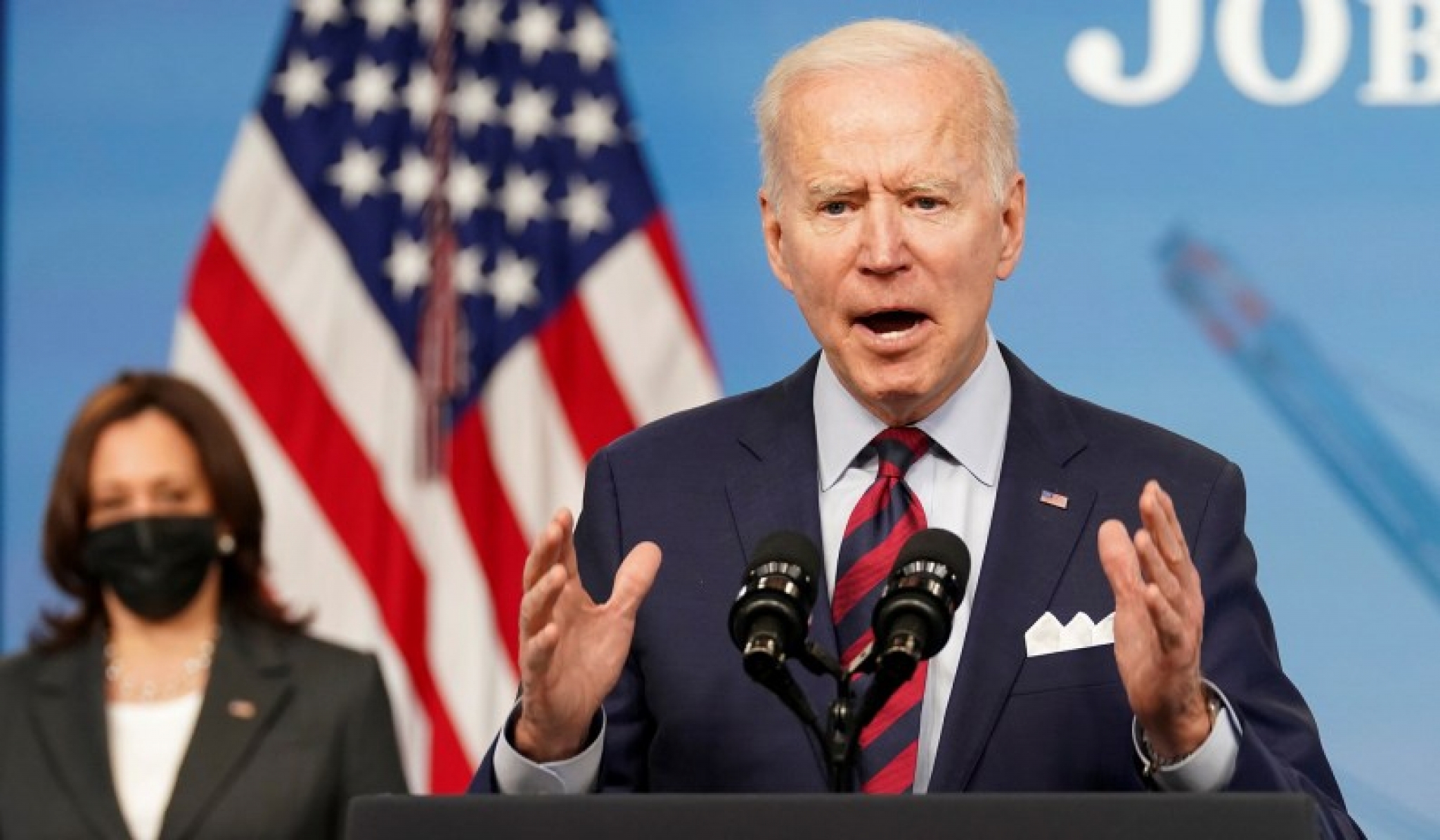How Republicans Can Stop Biden from Lifting Iran Sanctions

Instead of diluting their principles, congressional Republicans should use every available procedural tool to force tough votes.
President Joe Biden sent his negotiators to Vienna this week with a singular mission: Offer Iran billions of dollars as part of a first step toward rejoining a dangerous nuclear deal that Tehran cheated on from the very beginning. The only question now is what Congress plans to do to defend the sanctions architecture it has built over many years.
For weeks, Republicans and centrist Democrats in Washington held out hope that Biden would utilize the historic sanctions leverage he inherited from his predecessor to negotiate a better, more comprehensive deal with Iran. Biden had said that his goal was to “tighten and lengthen Iran’s nuclear constraints, as well as address the missile program.” Secretary of State Tony Blinken told the Senate Foreign Relations Committee that it would not be in the U.S. interest to lift terrorism sanctions on the Central Bank of Iran or the National Iranian Oil Company — institutions that were originally provided sanctions relief under the Joint Comprehensive Plan of Action (JCPOA), as the 2015 nuclear deal is formally known.
Under the Biden administration’s reported offer, however, the U.S. would lift terrorism sanctions on Iran up front without requiring any halt to the regime’s state sponsorship of terrorism. Iran would gain access to billions of dollars through its central bank and national oil company — both of which are subject to sanctions because of their ties to terrorism and Iran’s Revolutionary Guard Corps (IRGC), which itself is correctly designated as a terrorist entity. When asked this week if terrorism sanctions were, in fact, on the table in Vienna, State Department spokesperson Ned Price all but admitted it.
Under the arrangement being discussed, the Islamic Republic would gain tacit approval to sponsor terrorism, hold Americans hostage, enrich uranium on its own soil, test nuclear-capable missiles and engage in human-rights abuses against the Iranian people. More shockingly, a so-called nuclear deal to limit Iran’s ability to develop nuclear weapons would not require Tehran to account for its secret nuclear-weapons archive or clandestine nuclear sites, materials and activities currently under investigation by the International Atomic Energy Agency (IAEA). Recall that Iran lied to the IAEA in 2015 to gain access to sanctions relief. Its continued deception should be at the heart of any negotiation over its nuclear program.
Effectively, Biden is offering to subsidize the IRGC and reward Iranian nuclear deceit if the mullahs merely stop enriching uranium at higher levels and stop testing advanced centrifuges — neither of which are truly concessions since the JCPOA allows Iran to do both over time. Moreover, the offer of terrorism-sanctions relief constitutes a material breach of trust by the secretary of state, who led senators to believe that would never happen if they voted to confirm him.
On a bipartisan basis, Congress should demand a vote on any agreement reached in Vienna before sanctions are lifted; indeed, the law requires nothing less. Under the Iran Nuclear Agreement and Review Act of 2015, the president must submit to Congress the text of any agreement reached with Iran over its nuclear program and allow Congress time to review and potentially vote to reject it.
Senators of both parties should also consider responding to Secretary Blinken’s broken commitment on terrorism sanctions by pushing legislation to prohibit any sanctions relief — waivers, licenses, or delistings — that directly or indirectly benefits entities subject to U.S. sanctions as of January 20, 2021, because of their connections to terrorism and the IRGC. Any terrorism sanctions suspended before the law takes effect should be reinstated as well. Such legislation could get tacked on as an amendment to the annual defense authorization bill, setting up a tough political vote for Democrats who voted for Iran terrorism sanctions four years ago — while the Trump administration was still in the Iran deal.
Another potential amendment: no sanctions relief for Iran until all American hostages are released and Iran fully accounts for its undeclared nuclear activities. Who supports rewarding Tehran for taking Americans hostage? Who will defend a nuclear deal that lets Iran continue hiding nuclear sites, materials, and activities — contradicting the entire premise of the agreement? Forcing votes on must-pass legislation that exposes the fallacies of the Biden administration’s Iran policy will dramatically turn up the pressure.
For those who think it’s hopeless, think again. The Obama administration opposed sanctions targeting the Central Bank of Iran back in 2011. Yet Republicans — then in the Senate minority — used Senate procedure to force a vote on those sanctions anyway, and they passed 100–0. The lesson learned for Republicans: Instead of diluting their principles on Iran, they should use every available procedural tool to force tough votes.
Finally, Republicans should make clear that they will swiftly reimpose any sanctions relief provided to Iran by the Biden administration if they retake control of Congress in 2022 or the White House in 2024. Representative Mike Gallagher (R.,Wisc.) and Senator Tom Cotton (R., Ark.) introduced resolutions in the House and Senate opposing any lifting of Iran sanctions. These resolutions send a message to companies and banks around the world that they will once again find themselves subject to U.S. sanctions in the future if they wade back into Iran at the Biden administration’s behest.
Republicans should stop President Biden from relieving sanctions on Iran. They should also give the private sector second thoughts about rushing to do business with the world’s leading state sponsor of terrorism — especially since any sanctions relief is certain to be temporary.

